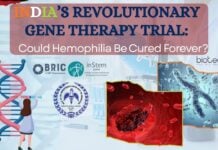Scientists Successfully Link Exercise And Prevention Of Breast Cancer
I got a gym membership last year; spent some serious money. Haven’t lost a pound. Apparently, you have to show up. And if you are anything like me, this piece is a must read.
In the past, people being treated for a chronic illness were often told by their doctor to rest and reduce their physical activity. But newer research has shown that exercise is not only safe and possible during cancer treatment, but could also be crucial to prevent the growth and survival of cancer.
Now, a new addition to this mounting evidence is the study by researchers in Denmark. Pernille Hojman of Copenhagen University Hospital in Denmark and colleagues have found a possible epidemiological link between exercise and a lower risk of certain cancers, including breast cancer: epinephrine activation of the Hippo signaling pathway.
Last year, Hojman and colleagues analyzed factors in the blood serum of women who’d survived breast cancer before and after two hours of moderate to intense exercise, identifying increases in lactate, epinephrine, norepinephrine, and certain cytokines. As had previously been noted, the blood drawn after exercise reduced the viability of breast cancer cells in culture. To determine
which of these molecules might be responsible, the team examined the blood of seven healthy women and 20 women being treated for early-stage breast cancer, before and after two hours of exercise.Confirming prior results, the researchers found that blood drawn after exercise thwarted the growth of breast cancer cells in culture, compared with blood drawn before exercise. In addition, mice injected with breast cancer cells that had been exposed to post-exercise serum were less likely to develop tumors. But both of these effects were reduced if the researchers blocked epinephrine from binding to its receptor and activating a tumor-suppressor signaling pathway known as Hippo on the breast cancer cells.
The results only applied to one breast cancer cell line, called MCF-7, of two lines tested. In the second, called MDA-MB-231, epinephrine did not activate the Hippo signaling pathway, and blocking epinephrine binding did not reduce the effects of post-exercise serum exposure on the cells’ growth. “MCF-7 cells are hormone receptor–positive and MDA-MB-231 cells are triple-negative,” Hojman explains in the release. “There are epidemiological data that suggest that exercise might be better at reducing the risk of recurrence of hormone receptor–positive breast cancer compared with triple-negative breast cancer, which might explain why the effects of serum obtained after exercise were more pronounced on MCF-7 cells. In addition, these cell lines differ in which mutations they carry, and the difference in the exercise effect might be a result of this.”
“The results of this study show that moderate to high intensity exercise leads to an acute increase in levels of epinephrine, which can reduce breast cancer cell viability and tumor growth via activation of the Hippo signaling pathway,” said Hojman. “Although these data suggest that it might be optimal for women with breast cancer to exercise at a moderate to high intensity, further studies are needed to confirm this. Women who have been diagnosed with breast cancer should consult a doctor before embarking on an exercise program.



























